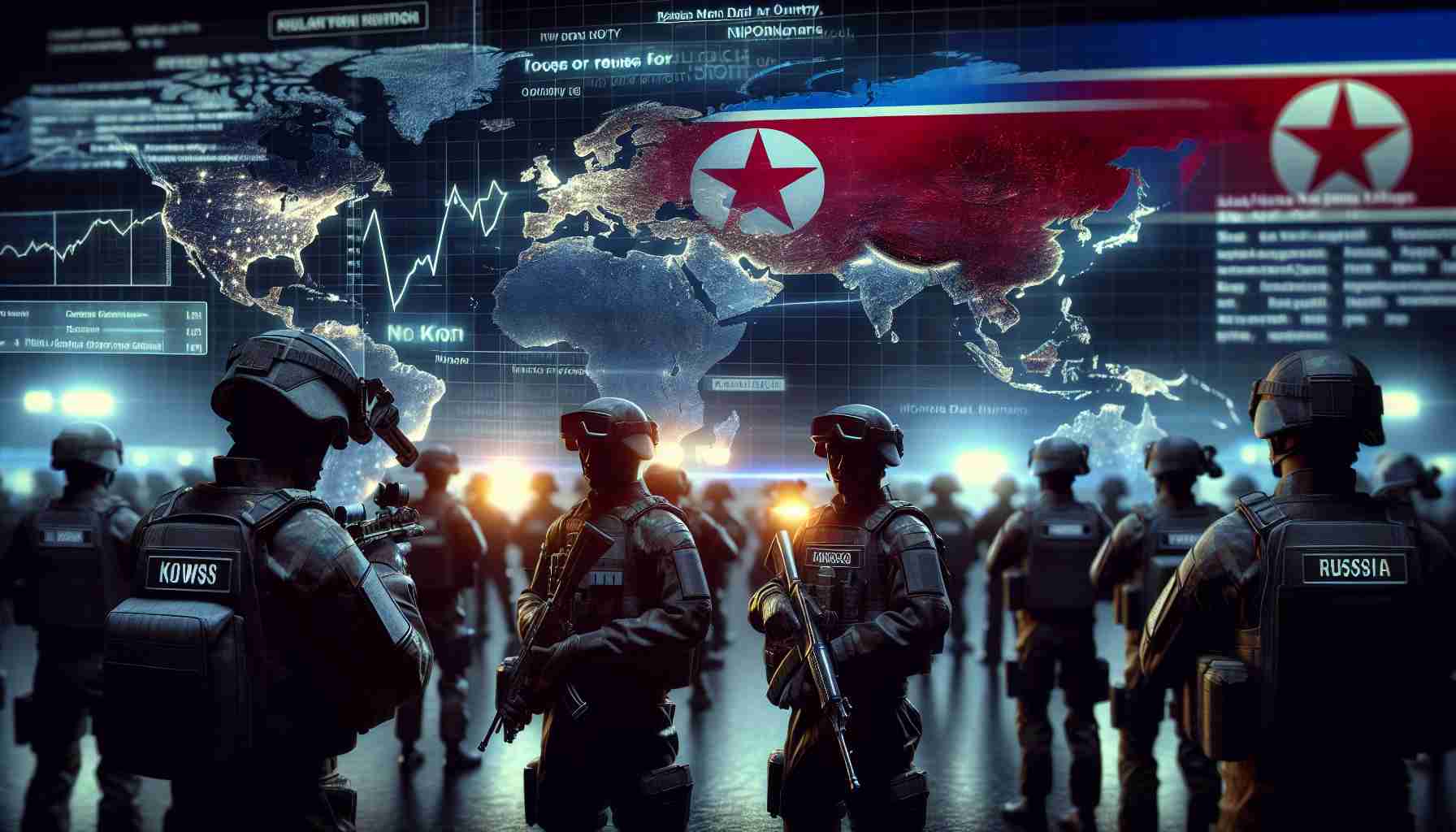
Ukrainian President Volodymyr Zelensky is urging global allies to react decisively to the troubling news regarding North Korea’s military involvement in the ongoing conflict in Ukraine. In his recent address, Zelensky highlighted that there is confirmed information indicating North Korea is dispatching troops to assist Russia, beyond merely supplying military hardware.
The situation escalated as Ukrainian officials released footage purportedly showing North Korean military recruits preparing for deployment in Russia’s Far East. Although the authenticity of this footage has yet to be independently verified, it adds urgency to the Ukrainian leader’s appeal for a robust international response against this new threat.
Recent reports from South Korea’s intelligence agency revealed that North Korea is sending approximately 12,000 soldiers to bolster Russia’s efforts in Ukraine. Initial movements included around 1,500 special forces being transported via a Russian naval vessel earlier in the month. This development raises alarms about the increasing collaboration between North Korea and Russia, particularly after their mutual defense agreement established earlier this year.
In a counter-response, South Korea’s Foreign Ministry summoned the Russian ambassador to express serious concerns about the presence of North Korean forces in the conflict. They emphasized that such actions pose a significant threat not only to regional stability but also to global security, highlighting a clear violation of United Nations resolutions. The unfolding situation underscores the complex dynamics of international relations amid the ongoing war.
In a significant shift in the dynamics of the ongoing Ukraine conflict, North Korea’s decision to send troops to support Russia has raised alarms among global leaders and analysts alike. This military collaboration marks a notable moment in the shifting alliances stemming from the war.
According to sources, the North Korean troops being deployed are likely composed of elite units, trained specifically for rapid deployments and unconventional warfare. This aspect of troop quality may enhance Russia’s capabilities on the battlefield amidst its ongoing struggles in Ukraine. The reported dispatch of these troops is not merely a tactical maneuver; it symbolizes a deepening military partnership between North Korea and Russia, which could embolden both nations against perceived Western encroachment.
A critical question surrounding this military collaboration is: Why is North Korea choosing to support Russia at this juncture? The answer lies in their shared interests. Both nations face significant sanctions and international isolation. Their mutual defense treaty suggests that they see cooperation as a means to counterbalance the influence of the West, particularly the United States and its allies.
Another pressing question is: What impact will this have on the conflict in Ukraine and broader global security? The introduction of additional North Korean military personnel could complicate the conflict, potentially resulting in increased casualties and a protracted battle. Furthermore, it raises concerns about the precedent of aligning authoritarian regimes to challenge global norms.
Key challenges associated with this military alliance include:
1. Military Capability: North Korea’s military practices and the quality of its troops are often less predictable due to the country’s isolated nature. This uncertainty could lead to operational challenges for Russia.
2. International Reactions: The increased collaboration may provoke stronger sanctions or military support from Western nations to Ukraine, potentially escalating tensions further.
3. Humanitarian Concerns: The involvement of North Korean troops could exacerbate humanitarian crises within Ukraine, with historically dangerous and indiscriminate combat approaches.
On the controversy front, there is significant debate regarding the legitimacy and implications of North Korean forces operating in Ukraine. Critics argue that such actions represent a blatant disregard for international law and previous UN resolutions prohibiting military support for conflict-afflicted nations. Conversely, some analysts posit that this collaboration illustrates a strategic alliance among nations seeking to assert their sovereignty against Western norms, complicating the global order.
Examining the advantages and disadvantages of North Korea’s involvement provides insight into the nuanced implications:
Advantages:
– Enhanced Support for Russia: North Korean troops could bring specific combat skills and add numbers to Russian forces, potentially changing the battlefield dynamics.
– Geopolitical Leverage: For North Korea, providing military support reinforces its relationship with Russia, a valuable ally against perceived U.S. and allied threats.
Disadvantages:
– Reputation Risk: North Korea risks increasing its global isolation by openly supporting a heavily sanctioned nation, likely drawing further condemnation from the international community.
– Operational Challenges: Integrating North Korean forces into Russian military operations may present logistical and strategic hurdles that could hinder effectiveness.
As this situation unfolds, global eyes will be closely watching the implications of this unprecedented military collaboration. The evolving relationship between North Korea and Russia could reshape not only the conflict in Ukraine but also the broader geopolitical landscape.
For further insights into international security issues, visit CSIS.



